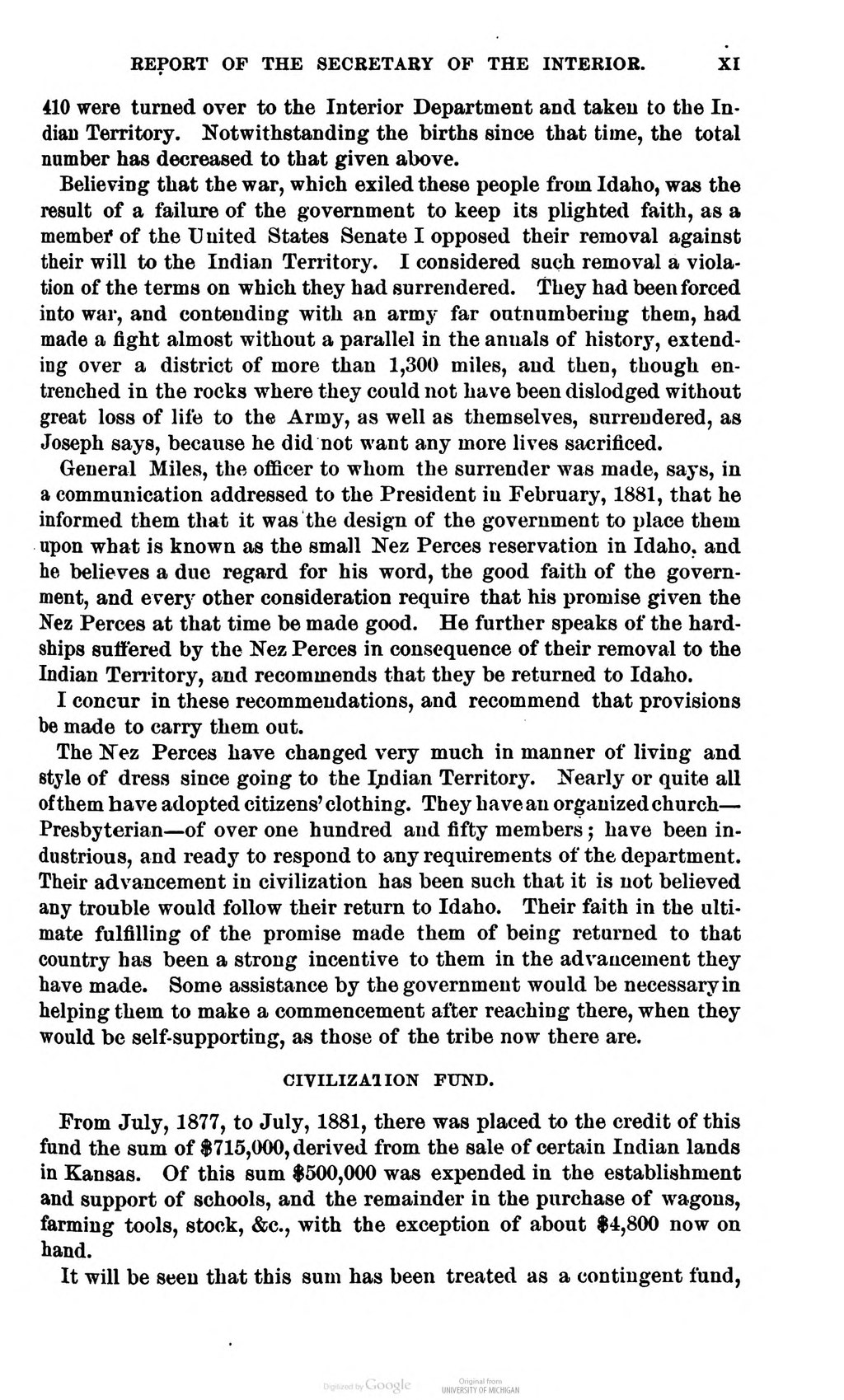410 were turned over to the Interior Department and taken to the Indian Territory. Notwithstanding the births since that time, the total number has decreased to that given above.
Believing that the war, which exiled these people from Idaho, was the result of a failure of the government to keep its plighted faith, as a member of the United States Senate I opposed their removal against their will to the Indian Territory. I considered such removal a violation of the terms on which they had surrendered. They had been forced into war, and contending with an army far outnumbering them, had made a fight almost without a parallel in the anuals of history, extending over a district of more than 1,300 miles, and then, though entrenched in the rocks where they could not have been dislodged without great loss of life to the Army, as well as themselves, surrendered, as Joseph says, because he did not want any more lives sacrificed.
General Miles, the officer to whom the surrender w as made, says, in a communication addressed to the President in February, 1881, that he informed them that it was the design of the government to place them upon what is known as the small Nez Perces reservation in Idaho. and he believes a due regard for his word, the good faith of the government, and every other consideration require that his promise given the Nez Perces at that time be made good. He further speaks of the hardships suffered by the Nez Perces in consequence of their removal to the Indian Territory, and recommends that they be returned to Idaho.
I concur in these recommendations, and recommend that provisions be made to carry them out.
The Nez Perces have changed very much in manner of living and style of dress since going to the Indian Territory. Nearly or quite all of them have adopted citizens' clothing. They have an organized church—Presbyterian—of over one hundred and fifty members; have been industrious, and ready to respond to any requirements of the department. Their advancement in civilization has been such that it is not believed any trouble would follow their return to Idaho. Their faith in the ultimate fulfilling of the promise made them of being returned to that country has been a strong incentive to them in the advancement they have made. Some assistance by the government would be necessary in helping them to make a commencement after reaching there, when they would be self-supporting, as those of the tribe now there are.
CIVILIZATION FUND.
From July, 1877, to July, 1881, there was placed to the credit of this fund the sum of $715,000, derived from the sale of certain Indian lands in Kansas. Of this sum $500,000 was expended in the establishment and support of schools, and the remainder in the purchase of wagons, farming tools, stock, &c, with the exception of about $4,800 now on hand.
It will be seen that this sum has been treated as a contingent fund,
